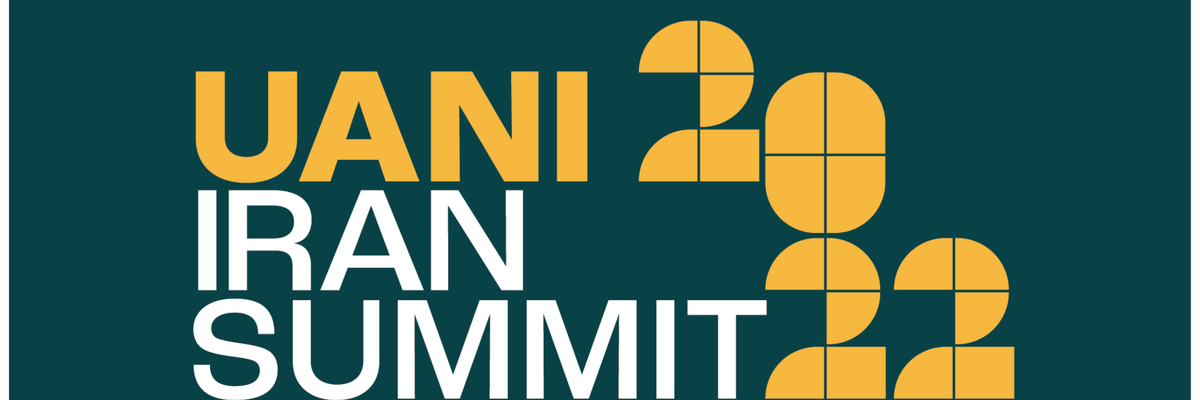United Against Nuclear Iran has quite the line-up for their conference this week. Attendees will be treated to speeches by three sitting senators, two foreign ambassadors, and Nikki Haley, who many speculate will run for president in 2024.
But one name stands out among the rest: Charlie Weimers, a member of European Parliament from the far-right Sweden Democrats (SD) party.
Weimers' party, whose slogan is “Keep Sweden Swedish,” began as a far-right, Nazi-inspired group in the late 1980s before attempting to rebrand itself as a more moderate right-wing party in recent years. The group’s new approach has helped it grow dramatically, leading to an unusually strong performance in recent parliamentary elections in which the party won over 20 percent of votes. But Willie Silberstein, who heads Sweden’s Committee Against Anti-Semitism, is not convinced that the SD has left its Nazi roots behind.
"It scares me that they might have a big influence in Swedish politics," Silberstein told the BBC. "I think of not only the Jewish minority, but of immigrants in general."
Weimers is the latest in a series of questionable actors that UANI and its allies have endorsed in order to further their pursuit of a “maximum pressure” strategy against Iran. UANI itself got into hot water in 2019 when its CEO, Mark Wallace, held an event that featured several members of the Mujaheddin-e-Khalq (MEK), an extremist Iranian opposition group that the U.S. considered a terrorist organization until 2012. (UANI denied any institutional connection to the event.)
And many Iran hawks have also lined up behind authoritarian states in order to support their aims. For example, prominent U.S. think tankers expressed support for autocratic Azerbaijan in its 2020 war with democratic Armenia, arguing that a strong Azerbaijan will help reduce Iranian influence in the Caucasus. Some even went so far as to speculate that Azeri Iranians could rise up against the central government and break off from Tehran’s control.
UANI did not respond to a request for comment. Neither did Sens. Jacky Rosen (D-Nev.), James Lankford (R-Okla.), or Joni Ernst (R-Iowa), all of whom are also on the summit’s list of speakers.
The SD was founded in 1988 by a group of far-right activists, many of whom had links to or had been members of fascist and white nationalist organizations. The group avoided any explicit endorsement of Nazi ideology, but it attracted significant support among skinheads and worked closely with far-right French politician and Holocaust denier Jean Marie Le Pen.
In the late 2000s, party head Jimmie Akesson, who joined the group when members still wore Nazi-style uniforms, pledged to steer the SD away from its racist history by purging its more extreme members. This aggressive approach has since morphed into a sort of PR whack-a-mole, with Akesson booting members from the party when their racist or anti-semitic comments are revealed.
Well, “revealed” may be a strong word in this case given that many of the party’s elected officials have shared bigoted opinions directly on social media. In 2018, a local SD politician wrote on Facebook that Hitler “wasn’t so bad,” and another joked that Anne Frank was the “coolest Jew in the shower room” on a Russian social media platform.
Another local SD official said that the Rothschilds controlled the economy and were responsible for anti-semitism, echoing an SD parliament member who railed against a media company with Jewish roots and complained that “no family or ethnic group should be allowed to control more than five percent of the media.”
Weimers joined the SD around the time of these controversies, when he left his job as a staffer for the center-right Swedish Christian Democrats. Since winning election on the SD ticket in 2019, Weimers has focused primarily on fighting immigration, supporting Israel, and encouraging the European Union to take a harder line on Iran. To his credit, Weimers said in 2020 that the party’s pro-Nazi founders should be condemned and endorsed what he described as Akesson’s “zero-tolerance policy on racism in the party.”
But it’s far from clear that the SD has enforced such a “zero-tolerance” policy toward bigotry. While anti-semitism scandals seem to have gone down in recent years, the group’s rhetoric on immigrants and Islam has not changed. The party’s latest platform sought to decrease migration as much as possible, even proposing laws that would allow asylum seekers to be turned away if they claimed persecution related to their religion or sexuality.
Weimers himself has mockingly referred to Islam as the “religion of peace,” lamented the influence of migrants from “non-European” cultures, and urged right-wing groups to protect “our civilization” from the Black Lives Matter movement.
Jan Christer Mattsson, who researches Sweden’s extremist right, told Responsible Statecraft that the SD’s avowed shift toward the center has largely been superficial. While the party has cut institutional ties with fascist groups, Mattsson says that its membership still has significant overlap with Swedish extremists. “It is not by chance, of course, that these neo-Nazi [scandals] within the Swedish Democratic Party turn up every season,” he said.
And despite the SD’s public support for Israel, Tel Aviv has made efforts to keep the party at arm’s length. Ziv Nevo Coleman, Israel’s ambassador to Sweden, condemned the group in no uncertain terms last year:
“I can say that this is a moral position that deals with far-right parties with roots in Nazism. We do not have, and do not intend to have, any contact with SD. They can say they support Israel, but you also have to look at what they don't support. Nor will we have contact with openly Islamophobic parties. This also applies to other countries in Europe.”
These comments make it all the more surprising that Gilad Erdan, Israel’s ambassador to the UN, is also scheduled to speak at UANI’s summit.
A spokesperson for Israel’s mission to the UN declined to comment about Weimers’ presence at the conference.
















